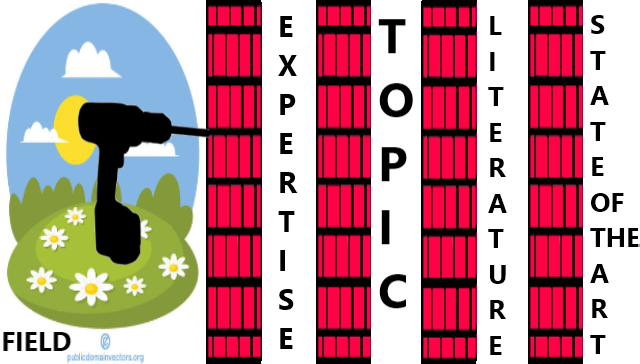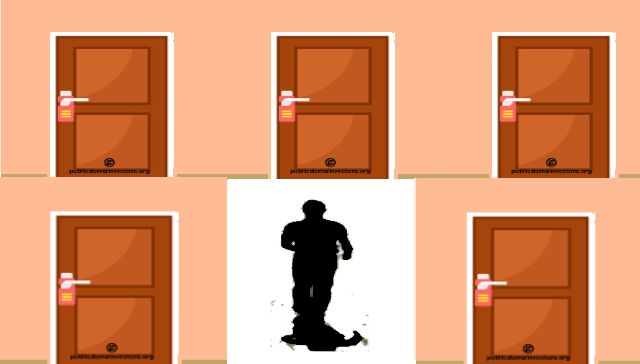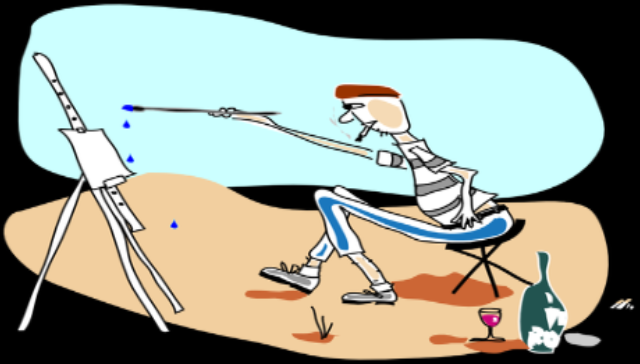My Experience in Writing a Research Plan

Disclaimer
This is not an official guide, not peer reviewed, and does not even take citations but only my opinion based on my experience of 9 years as a student in university. As years passes, experience and knowledge accumulates where this article maybe upgraded in the future. Still, I hope this article can answer to those who asked me of how to make a research plan. I probably made this article based mostly on my dissertation but check out my thesis and final project as well.
1. Choose a Field

You probably already have a field or major unless you just solely aimed to be accepted in a university only. Well if you are, then you better choose a general field like Computers, Electrical Engineering, Mathematics, Science, Social Science, Agriculture, Politics, Law, Art, Language, etc. For me, I am mostly in Computers, Internet, and Electrical Engineering because I spent most of my time on the computer and the Internet where they cannot function without electricity.
2. Choose an Expertise

What do you want to concentrate on in your field? If you say that you want to focus on electricity, electricity today have many applications. Do you want to do electronics such as with television, refrigerator, air conditioner, etc, or do you want to do electrical power such as with generators and power line transmissions, do you want to do telecommunications where electricity is used to deliver information such as your old phone and new smartphone, or do you want to study electricity as a science? There are many things and as for my field in Computers and Internet and I chose information communication educational technology (ICET). Computers can be for many things such as for calculation, processing, simulation, arts, gaming, etc, also for Internet such as social media, e-commerce, news, entertainment, etc. I chose utilizing Computers and Internet for education.
3. Choose a Research Topic

A topic is a discussion that you want to highlight in your concentrated field such the newest power plant, innovation in online payments, latest technology on video games, etc. However a "research" topic starts with a problem. A problem is not always accidents in operations like the power plant exploded and what to do, the Internet traffic got congested so how to solve, or classical math like solve this equation. A problem can be something that we want to do but cannot do such as how to send our other senses through the Internet like touch, smell, and test, how to find specific words mentioned in an audio or video, and how to verify transactions without third party. A problem can also be a desire for improvement such as how to generate more clean electricity daily, how to reduce electricity consumption, how to download a high definition video in less than a second, and how to increase the processing speed of computer processes. I chose a topic of how to capture students' attention and interaction during online learning.
4. Literature Review

While choosing a research topic can be done with minimum general information reading and brainstorming your own idea regarding the problem and solution, but to be accepted as a research, you need to survey how other researchers are doing. If you remained in your workshop connect a single board computer to a graphic processing unit (GPU) card and claimed that you assembled a hand size gaming computer, then ASUS, Dell, and other providers already released a hand size gaming computer that is much faster and much smaller if you do not know. For general audience who did not understand what I said, I will provide another example. You can stay in a cave, assemble a bunch of rechargeable batteries and components and claimed that you build a pocket charger for your phone, but you should realize that you are behind times that many powerbanks are already on the market. Unless you surveyed those products and claimed at least one advantage such as your creations are cheaper.
When I surveyed others' research about capturing students' attention and interaction during online learning, I found some tried to improve the conventional method where they use surveys and quizzes, some tried video calls, and some newer methods emerges which are eye tracking and mouse tracking. I decided to go with mouse tracking. Then I gathered any literatures regarding mouse tracking prioritizing ones in the education sector.
Where do I do literature reviews? While the conventional library books still works but in modern times, we have more options:
- Your professor or intended professor and peers research where my professor lists his papers in research gate.
- Use academic scholar search engine where my favourite is https://scholar.google.com/ where I searched for "eye tracking", "mouse tracking", "mouse cursor", "mouse activity", "clicks", "keystrokes", "mouse cursor education", "mouse tracking moodle", etc. You can also try searching directly in publishers such as Elsevier, Springer, and IEEE.
- Finally, search in the usual search engines such as Google and Presearch.
5. State of The Art

State of the art is the goal of literature review which is the most recent stage in the development of a product, incorporating the newest technology, ideas, and features. In other words, what novelty can you contribute? After reading all those literatures, what problems that you found or what issues that others have not highlighted or what ideas that have never emerged before? The quality and quantity of the state of the art determines the quality of the research plan.
As for my case about mouse tracking in education:
- Nobody had merged mouse tracking with automatic applications such automatically detect reading passage where outside of education it is useful to detect whether a user have read the terms of services or not. Another example is to detect whether students are paying attention during online classes or not, or outside of education whether participants are sleeping during meetings or not.
- Nobody had ever used mouse tracking to measure potential cheating during online exams where students often search the web for answers or asks friends through online messaging application.
- While mouse tracking have awesome utilities, I found it very strange that administrators very rarely implements this. As I investigate further, I found out that the problem is the amount of data generated which is too large.
- After the investigation, I found out that not all the raw mouse tracking is necessary. Therefore, I created a novel and superior method that can reduce the size of data generated from mouse tracking which can help to solve the problem the large data generation.
Writing your Research Plan
- Write the background of your research plan if it is for more general audience such as for my mouse tracking, I have to write about what online learning is, how it was able to bring convenience such as students can submit assignments from home, how many institutions have implemented it, and how everything online are more demanded during this pandemic. However, if you are presenting this to an expert in your field, skip the background and go straight ahead to the problem and objective.
- Additional points if you can write about the benefit, significance, utility, or urgency. For example for my mouse tracking, detecting reading passage is urgent to make sure users reads the terms of services, and measuring potential cheating is urgent for online certification examinations.
- While in a complete research article, how your method can solve the problem is written in the discussion and conclusion section, in a research plan you hypothesize or predict based on theories how your method can solve the problem written in the hypothesize section.
- Somewhere in your literature review where you write about how other research from all over the world are, write how your method is preferred for example my mouse tracking is preferred more than eye tracking because it does not need expensive equipments.
- The most general structure of your research plan contains the introduction, literature review, and method. The structure is customizable.
Mirror
- https://www.publish0x.com/fajar-purnama-academics/my-experience-in-writing-a-research-plan-xmkmwlj?a=4oeEw0Yb0B&tid=hive
- https://0fajarpurnama0.github.io/academic/2020/12/29/experience-writing-research-plan
- https://0fajarpurnama0.medium.com/my-experience-in-writing-a-research-plan-b8dcdbaf124f
- https://hicc.cs.kumamoto-u.ac.jp/~fajar/doctoral/experience-writing-research-plan
- https://0fajarpurnama0.tumblr.com/post/628796872276967424/development-of-a-lossy-online-mouse-tracking
- https://0darkking0.blogspot.com/2021/01/my-experience-in-writing-research-plan.html
- https://0fajarpurnama0.cloudaccess.host/index.php/9-fajar-purnama-academics/173-my-experience-in-writing-a-research-plan
- https://0fajarpurnama0.wixsite.com/0fajarpurnama0/post/my-experience-in-writing-a-research-plan
- http://0fajarpurnama0.weebly.com/blog/my-experience-in-writing-a-research-plan
- https://read.cash/@FajarPurnama/my-experience-in-writing-a-research-plan-7788f52a
- https://www.uptrennd.com/post-detail/my-experience-in-writing-a-research-plan~ODQ2NDkw